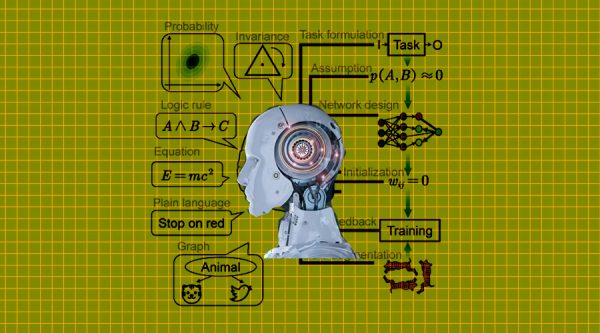Being a dynamic and quickly developing area, machine learning necessitates ongoing study to stay up to date on the most recent innovations. Here is a carefully selected collection of must-read machine learning books that will help you navigate the complexities of this game-changing technology as we approach 2024 and hope to expand your knowledge and skill set.
- Aurélien Géron’s book “Hands-On Machine Learning with Scikit-Learn, Keras, and TensorFlow”
Considered a fundamental resource for machine learning professionals, this book offers an interactive method for grasping essential ideas through the use of well-known frameworks like Scikit-Learn, Keras, and TensorFlow. Through useful illustrations and actual projects, Géron skillfully leads readers through the terrain of machine learning. - Andrew Ng’s “Machine Learning Yearning”
This book, written by the well-known Andrew Ng, focuses on the strategy, team management, and system design—aspects of machine learning projects that are sometimes disregarded. It acts as a thorough manual for choosing wisely at every stage of a machine learning project’s development. - Christoph Molnar’s “Interpretable Machine Learning”
For machine learning models to be used in the real world, it is essential to comprehend the decision-making process. Since Molnar’s book explores the approaches and strategies for deciphering and elucidating machine learning models, practitioners who are interested in model accountability and transparency should definitely read it. - Christopher M. Bishop’s “Pattern Recognition and Machine Learning”
Bishop’s book is a classic for anyone looking for a strong foundation in machine learning and pattern recognition. For readers who want to expand their theoretical knowledge of machine learning, it is appropriate because it addresses basic ideas from a mathematical standpoint. - Ian Goodfellow, Yoshua Bengio, and Aaron Courville’s “Deep Learning”
This book—often referred to as the “Deep Learning Bible”—offers a thorough examination of deep learning concepts as it continues to influence the field of machine learning. It serves both novices and seasoned practitioners, covering everything from fundamental ideas to sophisticated architectures. - Andriy Burkov’s “The Hundred-Page Machine Learning Book”
Burkov’s book provides a succinct yet thorough overview of machine learning fundamentals. This material is highly beneficial for anybody seeking a concise yet all-encompassing synopsis, suiting both novices and experts alike. - Andriy Burkov’s “Machine Learning Engineering”
This book, another one of Burkov’s best-known works, explores the usefulness of implementing and sustaining machine learning systems. It addresses issues including scaling, monitoring, and model deployment, offering insightful information on the practical aspects of machine learning initiatives. - Stuart Russell’s book “Human Compatible: Artificial Intelligence and the Problem of Control”
Ethical issues are becoming more important as AI and machine learning grow more pervasive in society. In exploring the difficulties of integrating AI systems with human values, Russell’s book provides a provocative viewpoint on the implications of machine learning for society. - Emmanuel Ameisen’s “Building Machine Learning Powered Applications”
Ameisen’s book is a useful manual for anyone interested in using machine learning in practical situations. With an emphasis on practical issues, it covers the entire process of developing machine learning applications, from problem definition to implementation. - “Reinforcement Learning: An Introduction” by Andrew G. Barto and Richard S. Sutton
This book provides a thorough introduction to reinforcement learning, one of the major fields of machine learning. For anyone interested in this fascinating and rapidly developing topic, it is an important resource as it covers the fundamentals of reinforcement learning.









